FDA chief summoned to White House amid pressure to authorize vaccine emergency use
The meeting comes as the FDA is reviewing multiple vaccine candidates.
The head of the Food and Drug Administration was summoned to the White House Tuesday amid President Donald Trump's frustration that his agency hasn’t moved faster to authorize Pfizer’s coronavirus vaccine for emergency use, officials familiar with the meeting told ABC News.
FDA Commissioner Stephen Hahn spent about an hour and a half at the White House Tuesday morning for a scheduled meeting with chief of staff Mark Meadows.
The meeting, first reported by Axios, comes as the FDA is in the painstaking and high-stakes process of evaluating multiple coronavirus vaccine candidates for emergency authorization before they are allowed to be distributed among the general public.
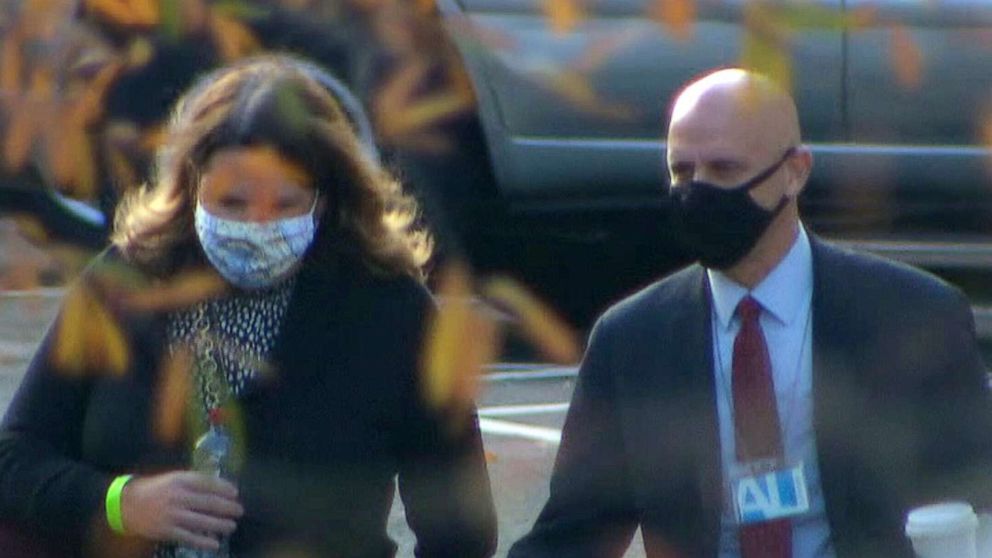
The encounter served as an indication that the White House is applying pressure on the FDA to speed up its authorization process, even as the agency is moving at an accelerated pace in reviewing thousands upon thousands of pages of data.
"Completion of these reviews involves such things as ensuring that the manufacturing process and the controls on manufacturing are appropriate, checking statistical analyses performed to ensure that they were done properly and doing additional analyses, as necessary, to look at the effect of the vaccine on subsets of individuals who might be at greater risk of adverse effects," an agency spokesman said in a statement.
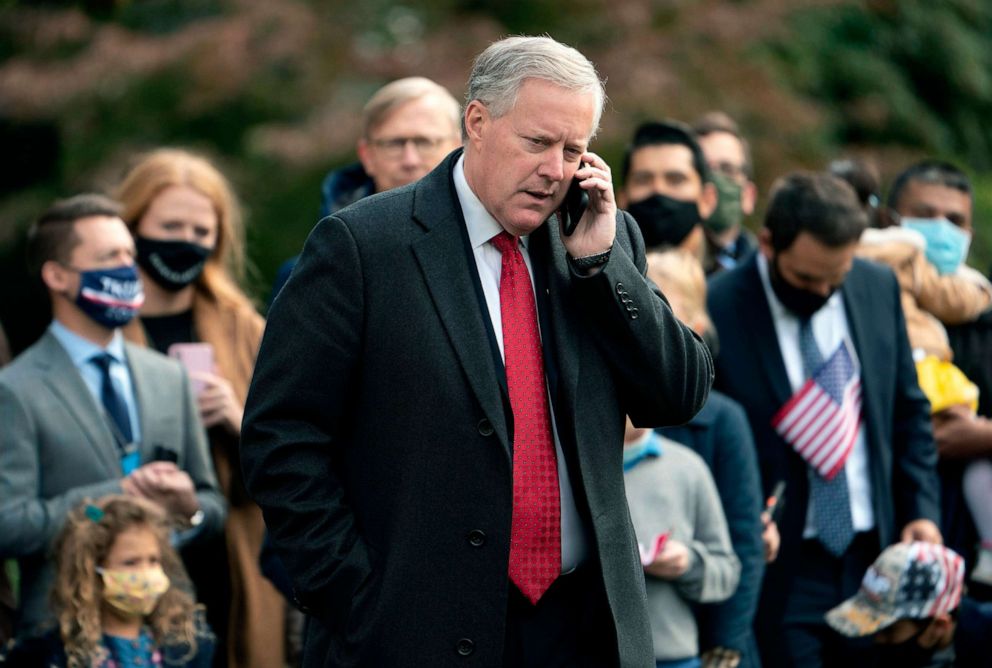
It was unclear whether Trump would participate in the meeting -- the White House did not respond when asked if he would -- but it comes as he has otherwise demonstrated little evidence of governing on the raging pandemic in the days since his election loss. Vice President Mike Pence has continued to meet with the White House's coronavirus task force and brief governors.
Before the meeting, Hahn said in a statement that his agency was balancing speed with making "an appropriate decision."
“Let me be clear -- our career scientists have to make the decision and they will take the time that’s needed to make the right call on this important decision," Hahn said. "We want to move quickly because this is a national emergency, but we will make sure that our scientists take the time they need to make an appropriate decision. It is our job to get this right and make the correct decision regarding vaccine safety and efficacy."
White House press secretary Kayleigh McEnany sought to downplay the appearance of tension, telling Fox News Tuesday morning “the FDA is working around the clock” but also saying “this president will never apologize for putting the fire under these agencies to say yes we want a safe vaccine, absolutely. We also want a fast one because lives are at stake.”
In recent days, Trump has lamented that President-elect Joe Biden would get credit for the vaccines.
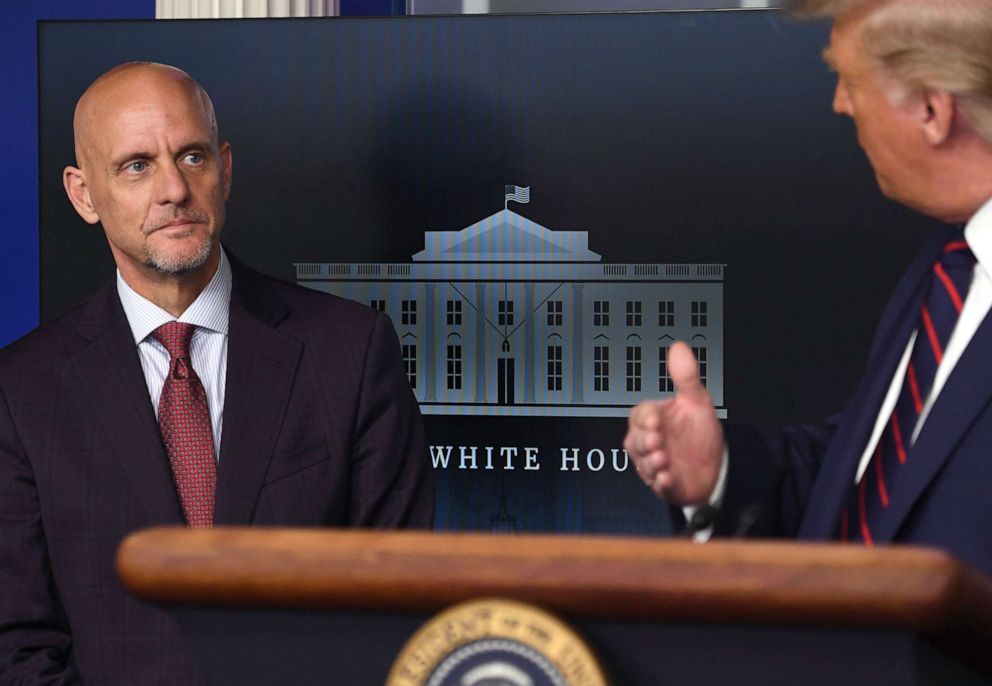
"They will try and say that Biden came up with the vaccines," he said in a Sunday interview with Fox News.
On Thanksgiving Day, he told reporters, "Don't let Joe Biden take credit for the vaccines."
"Don't let him take credit for the vaccines," he added, "because the vaccines were me, and I pushed people harder than they've ever been pushed before."
The White House said Tuesday that Trump and Pence planned to host several governors and executives from the private sector for a "COVID-19 Vaccine Summit" on Dec. 8, two days before a Food and Drug Administration advisory committee was scheduled to consider an application by the pharmaceutical company Pfizer for the emergency use authorization of a coronavirus vaccine -- the first in the United States.
White House deputy press secretary Brian Morgenstern said Trump "looks forward to convening leaders from the federal government, state governments, private sector, military, and scientific community for a comprehensive discussion with the American people," adding on Twitter, "This is about SAVING LIVES, not politics!"
STAT first reported on the gathering.
Trump has for weeks alleged -- without evidence -- that pharmaceutical companies and regulatory officials have slow-rolled the production and approval processes for coronavirus vaccine candidates in order to hurt him politically.
In reality, the development of COVID-19 vaccines has moved at record speed, and top Trump administration public health officials have insistedthat political motivations are not playing any role along the way.
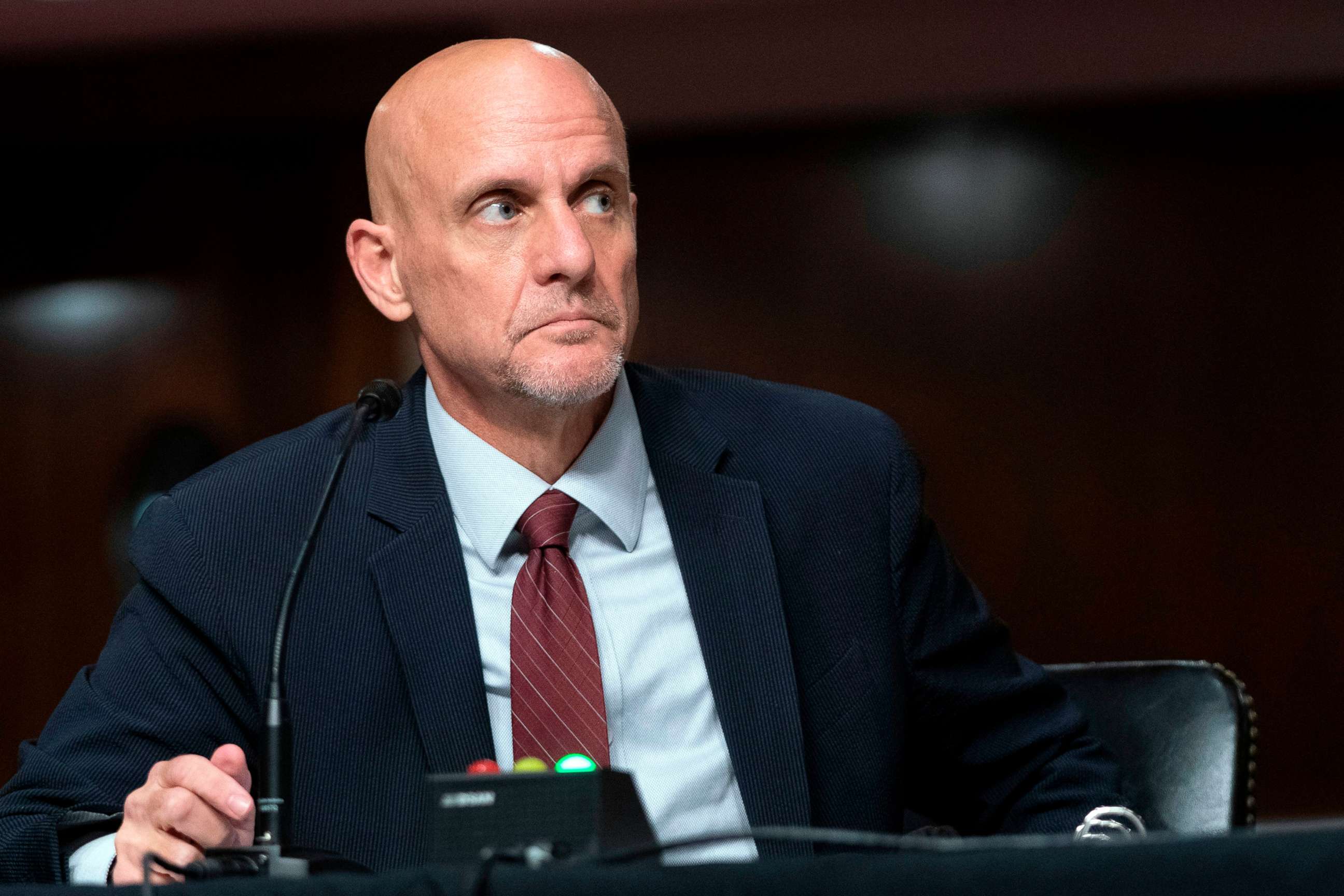
Hahn's summoning marked just the latest time Trump and the White House have attempted to exert political pressure on the federal public health agency he leads.
In August, Hahn apologized for exaggerating the benefits of a treatment being used on COVID-19 patients, convalescent plasma, after appearing alongside Trump at a White House news conference.
Trump had trotted out the commissioner to announce the treatment's emergency authorization; the president called it "powerful" and said it "had an incredible rate of success," and Hahn said the expedited approval was the result of the administration's work to "cut back red tape."
But the treatment's effectiveness had not actually been proven, and experts warned that rushing the authorization would make it harder for them to study it.
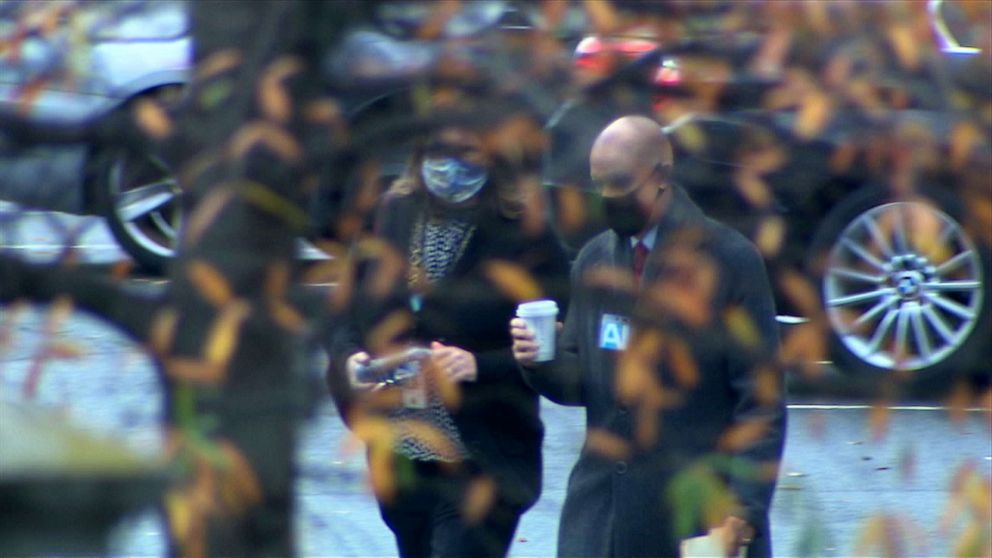
The FDA commissioner's visit to the White House came as a top White House adviser on coronavirus, Dr. Scott Atlas, said he was resigning this week.
Trump gave Atlas, a neuroradiologist with no infectious disease experience, a paid advisory role on the COVID-19 response after Atlas caught his attention during appearances on Fox News.
Atlas espoused controversial views at odds with longtime public health experts on the White House's coronavirus task force and drew widespread criticism from infectious disease scientists outside the federal government.
A White House official said Atlas was resigning because his 130-day term as a "special government employee" had come to an end.
ABC News' Anne Flaherty contributed to this report.




